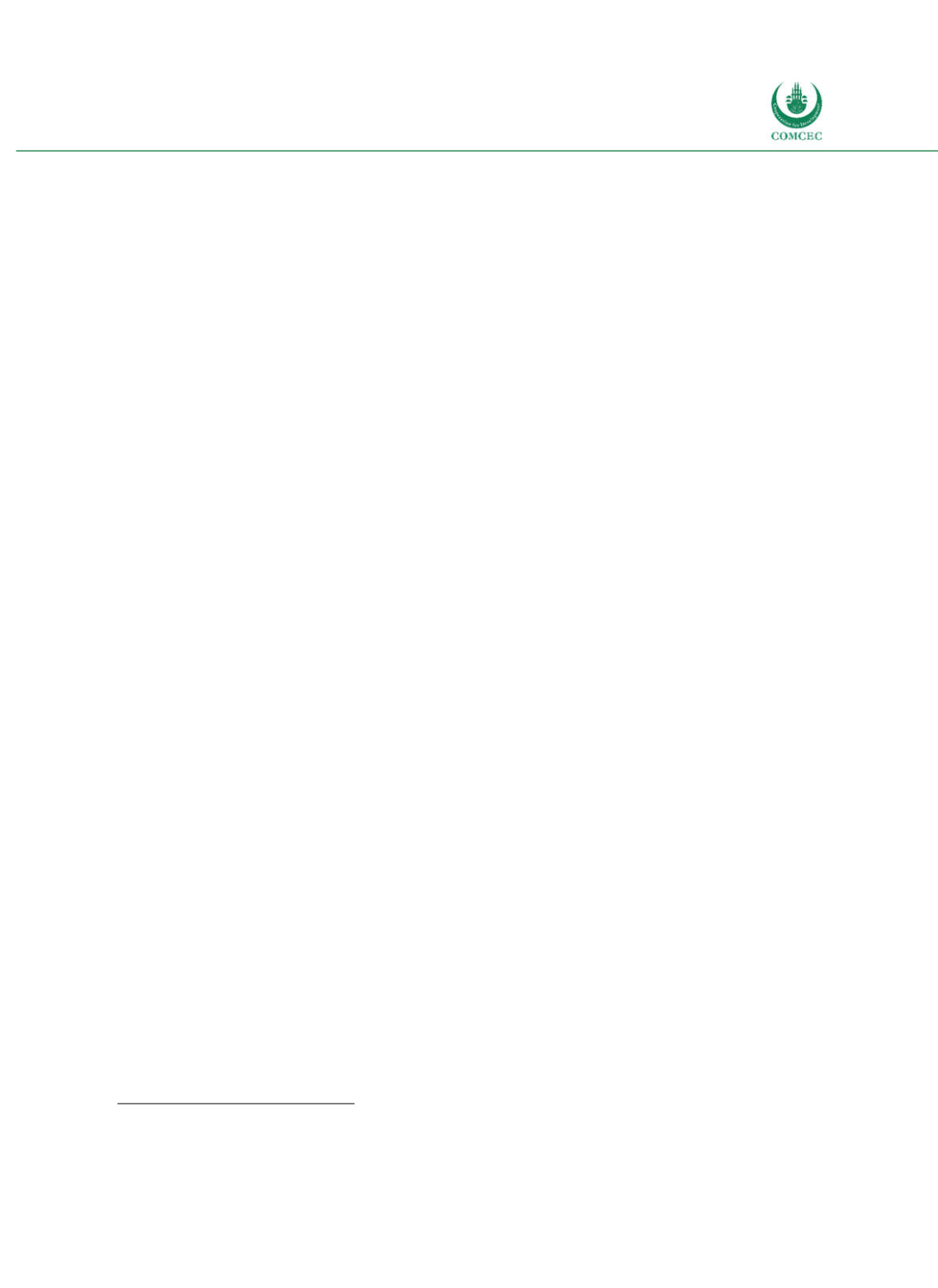

Improving Public Debt Management
In the OIC Member Countries
153
The share of external debt could be increased by attracting foreign investors. Reducing the
share of domestic debt counteracts potential crowdingout of private credit on the domestic
debt market. But if creditors’ expectations about the political stability of Lebanon continue to
decline, however, the cost of debt will increase.
30
Economic measures to reduce public debt
will prove futile if the Lebanese government cannot convince creditors of its capacity to act
and undertake extensive reforms. The Lebanese government is recommended to pass the first
budget law proposal note since 2006 and fill the presidential void that exists since 2014 in
order to create the necessary preconditions for future expenditure rationalizations, which
potentially improve public finances.
Reducing legal impediments restricting Islamic finance may foster increasing market shares of
Islamic banks particularly since there is considerable potential for Islamic banking in Lebanon
(El Hachem 2014, Naser et al. 2014b, Henry 2016). Moreover, Islamic banks in Lebanon have
been found to be as efficient as their conventional competitors (Bader et al. 2008, Hassan et al.
2009). While the public might be willing to invest in Islamic financial services and products, a
large share of the Lebanese population is not yet aware of these investment possibilities (Daily
Star 2014). The Lebanese government may foster the development of Islamic finance by
issuing debt in the form of
sukuk
bonds. Issuing
sukuk
may also attract investors from other
Islamic countries, therefore diversifying the investor base and increasing the share of external
debt.
30
In July 2016, Fitch Ratings downgraded its credit rating for Lebanon from “B” to “B“, citing, among other reasons, the
“persistent political risks” (Fitch Ratings 2016).
















